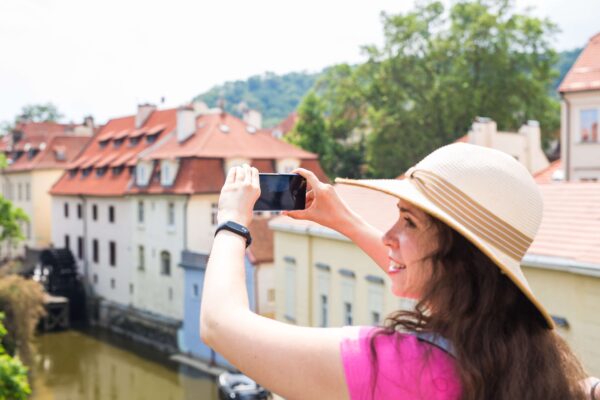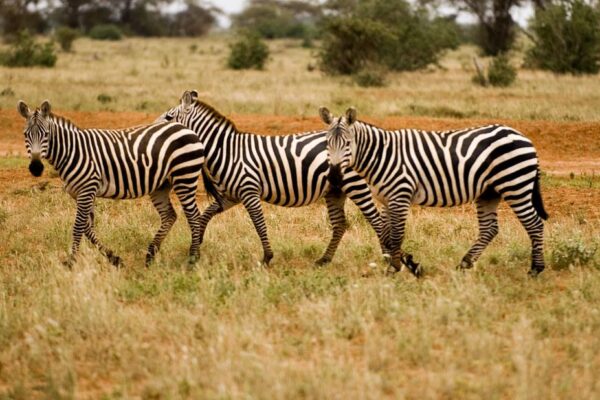– Number 5 Will Shock You!
Africa – a continent that’s been more than a conglomeration of people. A place that is so rich and full of culture and grace that every nook and cranny gives a different flavour of an incomparable experience.
A significant part of Africa’s rich culture is the diversity in spoken languages and accents. For many years, people have trooped to Africa, drawn by her beauty to the world. Hence, Africa has many languages collated over the years from worldwide. However, she still boasts of her native languages, the pride and heritage of Africa’s rich culture. Let’s go on a journey as we see ten of the most spoken African languages in no particular order and the regions of use in Africa.
1. Swahili
The natives of Africa know Swahili as “Kiswahili”, the most popular African dialect. Swahili is a ‘Bantu’ language between 100 to 150 million speakers across Africa. Some countries such as Uganda, Northern Mozambique, Tanzania, Democratic Republic of Congo, Rwanda, Kenya, Ethiopia, Burundi, Southern Somalia and the Comoros Islands have adopted Swahili. These countries use it as the academic language within their schools. It is an easy language to learn, especially with a basic knowledge of Arabic.
Some would say Swahili is a derivative of Arabic. Still, Africans have adapted this language to their colourful culture. It stands unique and evergreen as part of the African heritage. Interestingly, it is the language used in the famous Lion King animation. It goes to show that in Africa, we are one!
2. Arabic
Arabic is a language that has recognition throughout the world. It is generally accepted in business and every sphere of life. It has been in existence for longer than most countries. Therefore, it is no surprise that this colourful language found its way to the roots of Africa such that we have recreated it. Countries like Algeria, Mauritania, Egypt, Morocco, Eritrea, and Libya use Arabic. In Africa, natives recognize Arabic as a Semitic language, with about 280 million speakers worldwide, 60% of which are native Africans. Hence, Arabic is an essential means of communication and is advantageous to Arabic-speaking Africans worldwide.
However, like most ancient languages, Arabic has different variants. Various regions may have slight variations in speaking Arabic. Children learn basic and original Arabic in schools. Still, they learn to speak the variant common in their area because they interact with those around them. Therefore, you know to differentiate between the standard Arabic and colloquial variants, but this is helpful in business transactions and worldwide interactions in various spheres of work.
3. Hausa
Hausa is native to Niger and Northern Nigeria, part of West Africa. It is a derivative of Arabic and uses both Latin and Arabic letters for communication. There are about 39 million native Hausa speakers worldwide. It is generally used in communicating among Muslim Africans. Apart from Nigeria and Niger, other Hausa speaking countries include Benin, Chad, Cameroon, Burkina Faso, Togo and parts of Ghana.
Hausa is a tonal language, and changes in pronunciation lend varying meanings to words. However, several terms have exact spellings, making the Hausa language relatively easy to learn. The Hausa language is beautiful and intriguing. So many non-native Africans have learned to speak Hausa, bringing the number of Hausa speakers worldwide to about 90 million people.
4. Amharic
Like Arabic, Amharic is also a Semitic language quite popular in Africa. Amharic is beautiful, melodious in both writing and speech, and almost always spoken serenely. This is the second most spoken Semitic African language. The majority of speakers are in Ethiopia, with about 28 million speakers. It is pretty interesting that Amharic is one of the few native African languages with its own alphabets and can lend meaning to words. Hence, it accounts for the rise in native Ethiopian writings such as poems, literature and journals. Amharic sets these apart by lending its beautiful letters and method of writing as a spice to Ethiopian Literature.
5. French
Owing to the European colonization of most African countries, there are more French-speaking people in Africa than in France. This fact is mind-blowing and surprising. However, it shows that Africans can thrive and create beauty out of the direst of conditions and adapt foreign cultures to suit the African heritage. French speakers in Africa are approximately 90 million. They are scattered across Ivory Coast, Abidjan, Senegal, Cote d’Ivoire, Guinea, Mauritius, and Sao Tome e Principe.
Many countries teach French in their schools and learn basic French as means of business communication and international trade. Like most adopted African languages, African French has varying dialects depending on the region in Africa. This blend gives beauty and colour to the French language in Africa.
6. Yoruba
This is one of Africa’s most-spoken languages, which has gained recognition worldwide. It is native to Western Nigeria, Togo and the Benin Republic and has over 30 million speakers worldwide. The colourful language has several variants. These dialects have helped people groups from various regions over the years.
7. Shona
Native to Zimbabwe is the most common language for communication aside from the English language, with over 10 million speakers. The Shona language has three dialects named Korekore, Zezuru and Karanga and is written using the Latin Script. The Shona variant used at a time determines the depth of the conversation. The lower variant signifies casual discussions, and the higher Shona variant is reserved for prayers.
8. Oromo
Afaan Oromo fully describes this language. Although it is less famous globally, it has about 30 million native speakers in countries such as Kenya, Egypt, Somalia and about 40% of Ethiopia. This is beautiful and lyrical to the ears and is scripted in Latin Letters. It is one of the native African languages that gained popularity in Africa before colonialism. Most root African words emanated from Oromo.
9. Igbo
The Igbo language is native to the eastern part of Nigeria. Still, it is also a common language in Equatorial Guinea and Cameroon, with over 20 million speakers. The Central Igbo is the most common in these regions. Still, the Igbo language has over 20 variants that are unique to people from different parts of Eastern Nigeria.
10. Zulu
As part of the famous African heritage, Zulu is one of the most commonly known and recognized African languages worldwide. It doubles as the name of the largest South African ethnic group and has about 10 million speakers in South Africa. Zulu is also a subset of the Bantu language group. It is so similar to the Ndebele and Xhosa that most people categorize these three as a single language.
Africa is rich with culture, and the diversity in languages and speech has never broken the unity which the African people enjoy. Dialects, languages and variations in speech and writing patterns lend colour and harmony to Africa, and this is what makes us one!






One thought on “The 10 Most Popular African Languages”
Comments are closed.